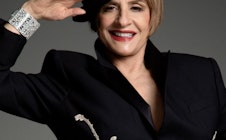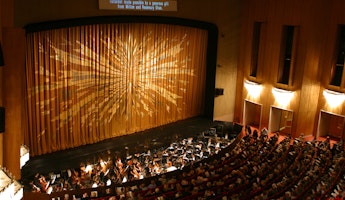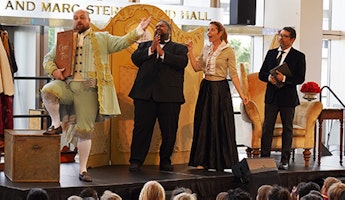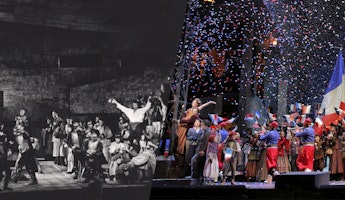Press Releases & Statements
March 10, 2020
Statement: Summary of Findings
LA Opera Independent Investigation: Summary of Findings and Recommendations
In August 2019, LA Opera and the operatic community became aware of allegations that Plácido Domingo engaged in sexual harassment and other misconduct. Given the seriousness of the claims, LA Opera immediately decided to conduct a thorough and independent investigation into the allegations. The law firm of Gibson, Dunn & Crutcher LLP (“Gibson Dunn”) was hired to conduct an investigation of Mr. Domingo’s conduct at LA Opera. That investigation has now concluded.
During the past six months, the Gibson Dunn team, led by attorney and former United States Attorney and Superior Court Judge Debra Wong Yang, actively encouraged in a variety of ways all individuals who wanted to share information related to the investigation to contact the investigation team. This outreach included Gibson Dunn sending a letter to current and former LA Opera employees, asking the Associated Press reporter who had initially reported allegations about Plácido Domingo to invite her unnamed sources to participate, and creating a dedicated email address so that anyone with information to share could contact their team.
At the outset, we at LA Opera thank all of the women who came forward to share their stories. Their openness, perspective and candor will effect real change. LA Opera also wants to thank all of the other individuals who shared information with Gibson Dunn.
During the investigation, Gibson Dunn interviewed 44 individuals, including individuals reporting misconduct, LA Opera management, board members and Mr. Domingo. Gibson Dunn extended anonymity, to the extent possible, to any individuals who requested it. In addition, the investigation team collected approximately 500,000 documents and extensively reviewed several thousand of them relating to the allegations.
Gibson Dunn received 10 allegations of Mr. Domingo engaging in inappropriate conduct between 1986 when Mr. Domingo was appointed as Artistic Advisor and 2019 when he resigned as General Director. Gibson Dunn deemed the allegations to be credible, in part because of the similarities in their accounts. The level of discomfort reported by the women varied, ranging from some women stating they were not uncomfortable to others who described significant trauma. Some individuals stated that they felt discouraged to report misconduct due to Mr. Domingo’s importance and stature.
Mr. Domingo cooperated with the investigation and willingly met for an interview with the Gibson Dunn team. He denied all allegations of unwanted contact and maintained that all his interactions were consensual. Gibson Dunn often found him to be sincere in his denials but found some of them to be less credible or lacking in awareness.
Gibson Dunn interviewed numerous individuals involved in the casting process at LA Opera. Based on those and other interviews, Gibson Dunn found no evidence that Mr. Domingo ever engaged in a quid pro quo or retaliated against any woman by not casting or otherwise hiring her at LA Opera, especially since casting and other hiring decisions are complex, performance-specific and determined by multiple people.
Gibson Dunn concluded that LA Opera’s sexual harassment policies and procedures are sufficient on their face and found no evidence that LA Opera ever ignored, failed to address, or covered up sexual harassment complaints. At the same time, Gibson Dunn found several flaws in the manner in which LA Opera implemented its policies, procedures, and communications regarding sexual harassment.
Gibson Dunn found LA Opera’s communications regarding sexual harassment to be insufficiently robust and at times lacking. They also determined that LA Opera’s approach to addressing sexual harassment was largely reactive until 2018, when the organization voluntarily implemented a more proactive approach to the issue. Gibson Dunn found that, while management took complaints of sexual harassment seriously and addressed each one in some manner, the structure, process, and documentation relating to sexual harassment in earlier years had been too informal and at times inconsistent.
LA Opera invited Gibson Dunn to make recommendations based on its findings. As a result, Gibson Dunn issued a number of recommendations that were directed at improving LA Opera’s policies, procedures, and practices to make certain LA Opera was using best practices and, going forward, to serve as a model for opera community in general. Gibson Dunn’s recommendations were focused on ensuring LA Opera takes proactive steps to prevent sexual harassment and other misconduct, and to encourage reporting of any such misconduct so that any future issues may be addressed in a timely and appropriate manner.
LA Opera accepted and is in the process of implementing all of Gibson Dunn’s recommendations.
Those recommendations include the adoption of a more formal, written process for investigating, resolving and documenting HR complaints, which includes a strengthened role for the HR department and more clearly articulated roles and responsibilities for management. As a part of that process, Gibson Dunn advocated for more specialized training for managers as well as a requirement that contractors attend mandatory training and affirm that they are aware of and will comply with LA Opera’s sexual harassment policies. In addition, they recommended that specific policies should be created to govern interactions that create a heightened concern about sexual harassment, such as scenes that are sexual, intimate or involve nudity.
Gibson Dunn also advised that LA Opera should more proactively address cultural differences and sensitivities, particularly those surrounding sexual harassment, imbalance of power and high-profile performers. They recommended that LA Opera develop channels of communication that allow people to more readily share concerns and discuss policies outside of formal training, as well as ensuring that its existing whistleblower hotline is well known and allows for individuals to make anonymous reports.
In addition, Gibson Dunn recommended that the Board of Directors establish a committee to oversee the implementation of these recommendations, as well as designating one or more individuals at the Board level to receive sexual harassment complaints in the event an individual is not comfortable reporting to management.
As we work to implement each of those recommendations fully and expeditiously, LA Opera acknowledges the need to understand and address broader cultural issues that may contribute to the existence of, and reluctance to report, sexual harassment in the opera industry. We will be working proactively with other stakeholders to advance a cultural change throughout the opera community on these issues.
We believe that everyone should be treated respectfully and feel secure within their work environment. We also believe everyone should feel safe and should be encouraged to report any misconduct they encounter. As such, we deeply regret the negative experiences that the people impacted have had at LA Opera and apologize to those affected. We are committed to doing everything we can to foster a professional and collaborative environment where all our employees and artists feel comfortable, valued and respected.








/03-cosi/_dsc0996_pr.jpg?format=auto&fit=crop&w=345&h=200&auto=format)













